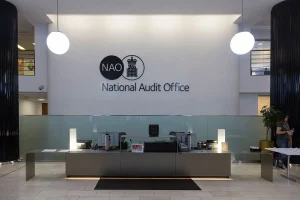Earlier this year the National Audit Office (NAO) released report on the lessons to be learned from the implementation of the reforms to tax rules for off-payroll working in the public sector.

By way of background, the ‘IR35’ rules were introduced in 2000 to prevent self-employed workers avoiding PAYE and Class 1 National Insurance (NIC) by working through a personal service company (PSC). The target was so-called ‘disguised employment’.
The administration of the rules changed for public sector contracts in 2017 and was extended to many private sector contracts from 6 April 2021. In essence, the responsibility for compliance moved from the PSC to the end client, or to the agency making the arrangements and payments.
The NAO investigation covered how HMRC introduced the 2017 reforms, the approach it has taken since, and the lessons to be learned when extending the reforms to the private and third sectors.
The report is in five parts, covering:
- the new IR35 requirements on public bodies from 2017;
- what HMRC did to mitigate risks it identified to compliance, public bodies and workers, including guidance and support, monitoring and adaptation;
- what impact the roll-out has had on public bodies, workers and tax revenue;
- how HMRC assesses public bodies’ compliance with the IR35 rules and what it has found to date; and
- how HMRC has adapted its implementation of the next phase of the roll-out based on lessons from the public sector experience.
The key findings from the report are as follows:
- Somewhat unsurprisingly HMRC observed an increase in tax revenues and numbers of workers deemed to be employed for tax purposes.
- Some workers disputed their tax status, but unfortunately there is no clear legal route to appeal the determinations so that contractors had next to no chance of appealing unfair IR35 status decisions.
- The 2020/21 financial statements of government departments and agencies include a total of £263m paid, owed or expected to be owed in additional tax.
- HMRC’s approach to non-compliance results in it collecting more tax in total than is due, however there is no current plan to address this which seems grossly unfair.
- HMRC may have underestimated the cost to employers of implementing the reforms. The report suggested that “significant investment may be needed” by employers into contracting organisations, independent review structures and approval policies to ensure their organisations remain compliant. In addition, many public sector organisations have had difficulties in finding contractors or found that contractor fees had increased.
- Inherent differences between the public and private sectors mean that HMRC faces new and challenging risks following the wider implementation of IR35 reforms. For example, HMRC estimates that the 2021 extension of the reforms will affect 180,000 personal service companies (PSCs) – almost four times the number affected by the 2017 public sector reforms. Complex supply chains are also more common in the private sector, including those that cross international borders or involve overseas workers. This is likely to mean a greater risk of companies making errors when determining tax status.
The report recommends that HMRC should:
- further develop the ‘check employment status for tax’ (CEST) tool and accompanying guidance to make it as easy as possible to use accurately. The CEST tool was updated in 2019 however the NAO said that more could be done to make to the tool easier to use accurately;
- assess the usefulness of CEST for different sectors;
- identify and set out case examples of good implementation to promote compliance by helping organisations get determinations and tax deductions right first time;
- update its estimate of compliance costs to hiring organisations based on actual experience, to help all parties understand the scale of activity needed and how HMRC can best support implementation;
- develop a more effective and efficient system to ensure HMRC accurately collects the total taxes due from workers and hiring organisations when errors have been made; and
- build on its improved collaboration with stakeholders to enable constructive discussions and pre-empt challenges in the public and private sectors.
When the off-payroll labour rules were introduced for the private sector in April 2021, HMRC announced a grace period during which they would not charge penalties on failure to properly comply – this so-called ‘penalty soft landing’ has now ended. This means that in addition to collecting the PAYE and NIC due on the incorrect assessment of contracts engaged via personal service companies, HMRC will charge penalties too – potentially adding up to a further 100%. The cost of getting things wrong has increased! Now would clearly be a good time to check that policies and procedures for engaging with off-payroll workers are adequate.


